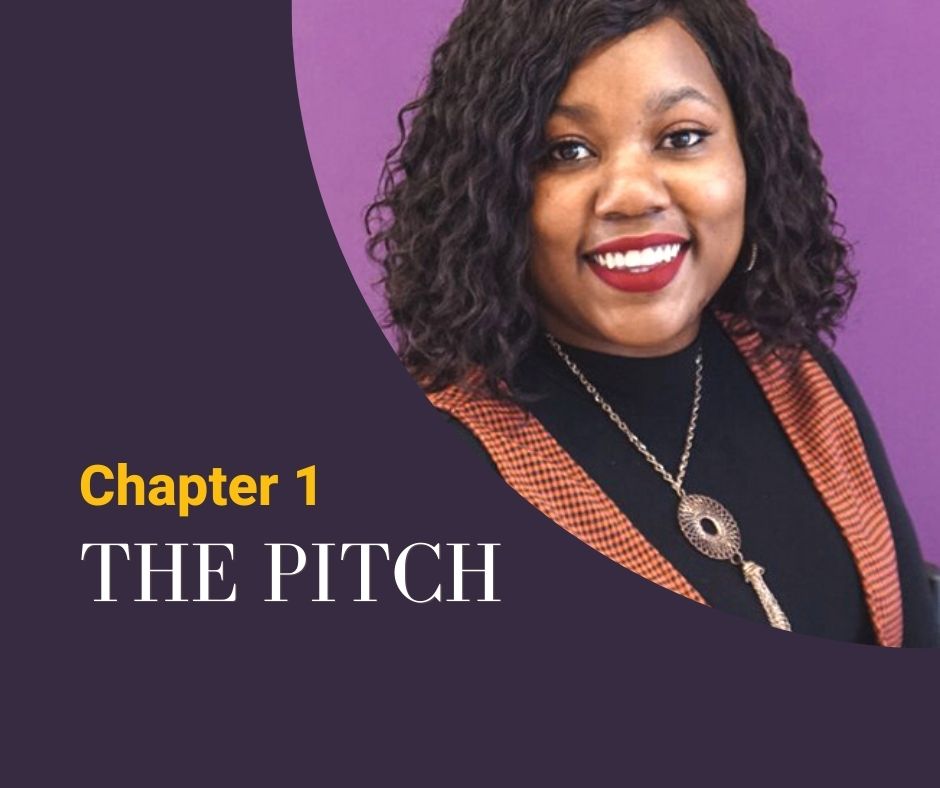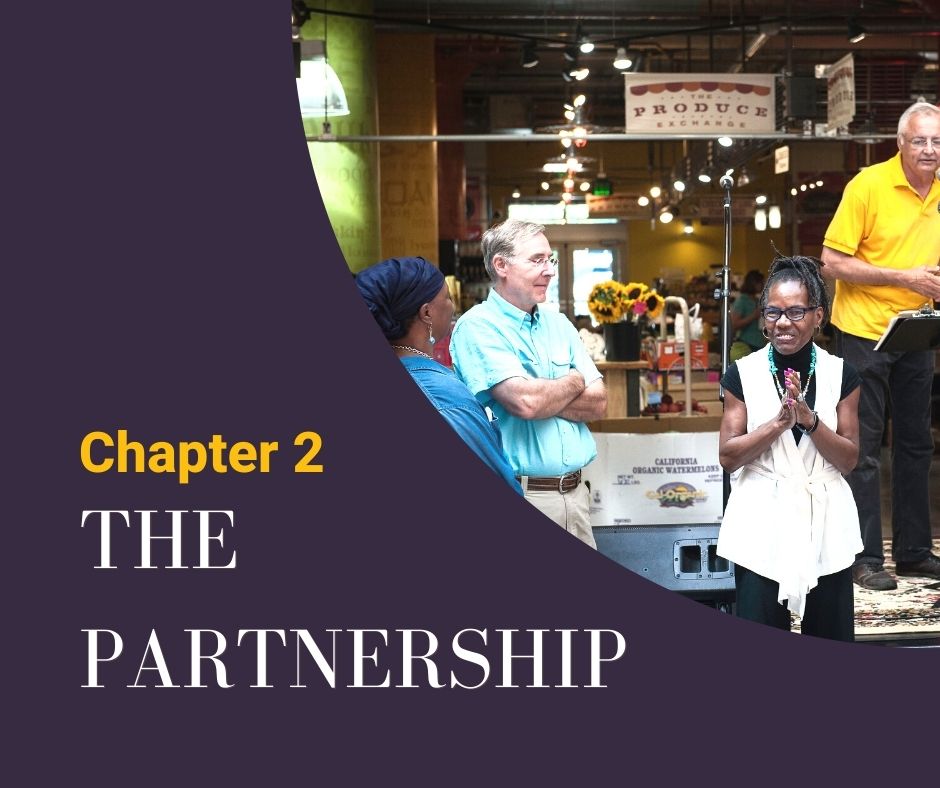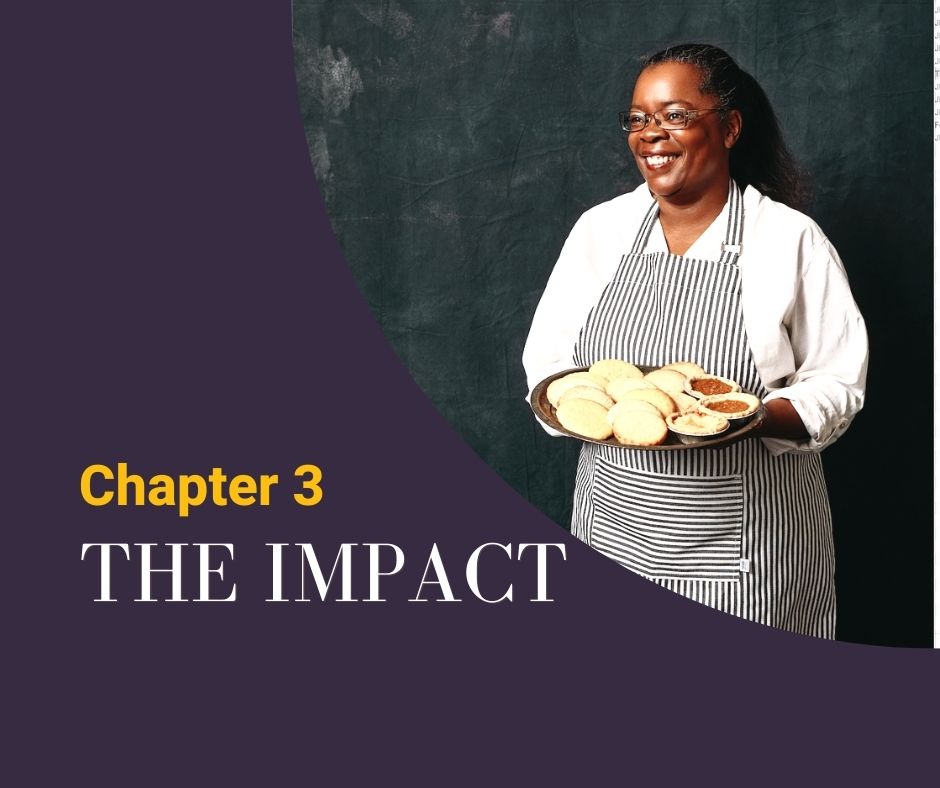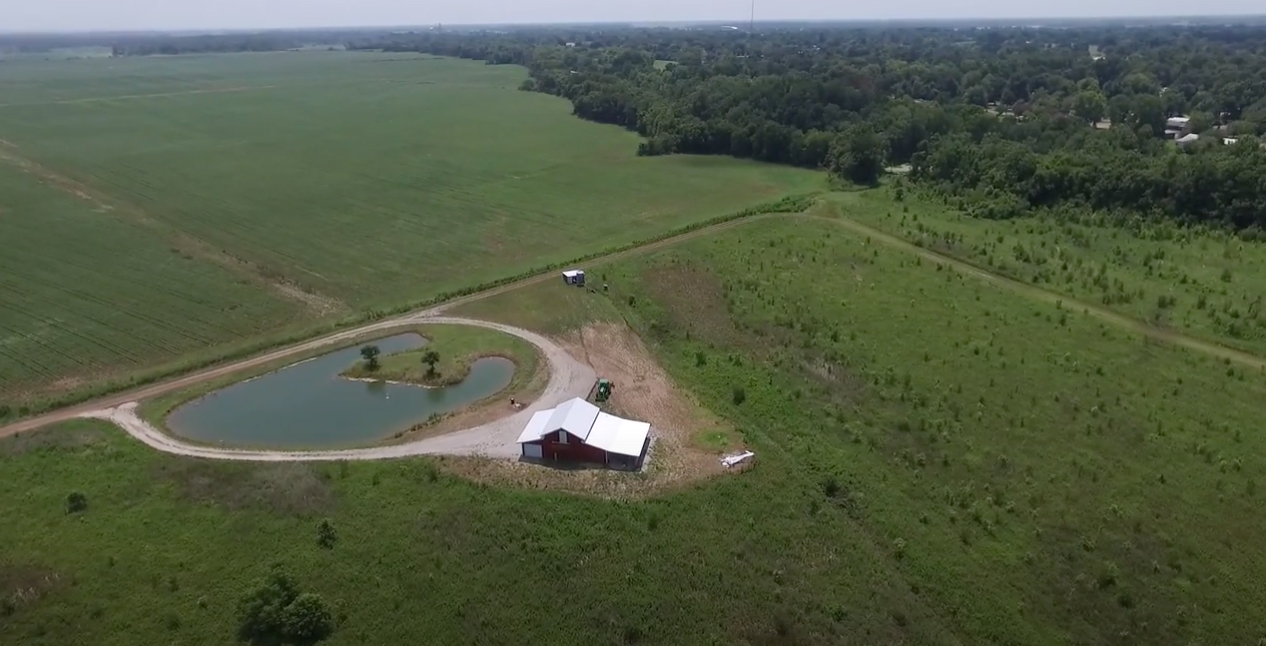
Tea cakes meant summer, freedom, and love to the little girl in glasses and pigtails. It was 17 hours by car from the crisp mountain air of Denver, her hometown, to Simmesport, Louisiana, where the hot summer breeze packed a wet wallop.
Grandma Helen grew up in Simmesport, and Grandma Helen made tea cakes.
Fields and bayous of Simmesport, Louisiana, in Avoyelles Parish by the Atchafalaya River.
Drone footage courtesy of Chris Shuttlesworth.
A little girl with tea cakes in her pocket could spend an entire summer day exploring the fields and bayous around the town of Simmesport on Louisiana Highway 1, close by the Atchafalaya River in Avoyelles Parish. “Tea cakes were a big part of my childhood. They were how my family showed me love,” Pamela Richard said.
In Denver, the only place to get tea cakes was Grandma Helen’s. It was Grandma Helen who nicknamed her Miss Peabody, because she wore glasses like the smart beagle in the 1960s cartoon “Mr. Peabody & Sherman.” And it was Grandma Helen who decreed her oldest granddaughter would be her official tea cake batter taster.
But Simmesport, that was different.
Tea cakes were everywhere, part of the Southern culture. Starting at the age of six, Richard spent a dozen summers there with Grandma Helen’s sister, Anna. She, like other Simmesport grown-ups, used tea cakes as part of her child-management strategy. “Especially in the rural south, church was a big deal, just all day,” Richard said. “To tide you over, you would get a tea cake to keep you from fidgeting.”
Richard was an observant child. In Denver, she saw people, including Grandma Helen, making money in various ways. Her grandmother and great-great-aunt rented out rooms to make extra cash. Her Five Points neighborhood was called the Harlem of the West. Richard saw her hometown community filled with Black professionals and stores owned by Black people.
“I saw freedom in owning your own business,” Richard said. “No one told me how to do it or gave me a pathway. I’ve always wanted to have my own business, but I didn’t have the terminology to say, ‘I want to be an entrepreneur.’”
Richard found her pathway to entrepreneurial freedom when she connected mid-career with the Rocky Mountain MicroFinance Institute (RMMFI) and attended its Business Launch Boot Camp in 2011. What she learned, and her support from RMMFI training and mentors, helped her launch Miss Peabody’s Southern Tea Cakes.
As RMMFI has helped Pamela Richard grow as an entrepreneur, so has Richard helped RMMFI grow.
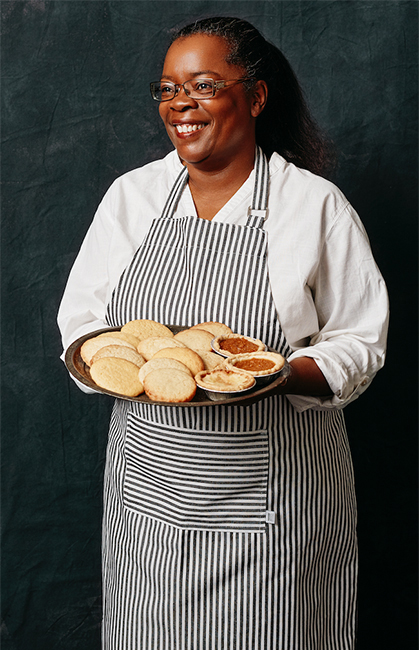
“I saw freedom in owning your own business” –Pamela Richard, Miss Peabody’s
Photo by Paul Miller.
Richard provides outreach services to potential entrepreneurs and serves as a mentor for other RMMFI entrepreneurs. She helps embed RMMFI even more deeply among Denver entrepreneurs. It is a relationship that has grown over time, as entrepreneur and nonprofit embarked on journeys that were anything but predictable.
Ten years ago, in the fall of 2011, RMMFI was one of the nonprofit organizations that made a pitch at the first-ever Investment Connection event. RMMFI was a young organization on uncertain financial footing. Investment Connection helped it launch partnerships with banks and other funders. Those partnerships, and the capital they provided the nonprofit, allowed RMMFI find a better way to teach its budding entrepreneurs.
The Atchafalaya River Bridge at Simmesport was under construction in 1966, when Pamela Richard was visiting the area. Photos from the Louisiana Digital Library, State Library of Louisiana Historic Photograph Collection.
Very first Investment Connection comes at pivotal moment for RMMFI
RMMFI, a Community Development Financial Institution (CDFI), opened its doors at the end of 2008. It faced an economic landscape still parched from the Great Recession. Staff members worked without pay the first 18 months. “We saw great potential [in our business model],” said Rob Smith, who recently retired as CEO at RMMFI Rob Smith. Rob and his staff members took a second job or leaned on significant others. “We believed so strongly in what we were doing.”
In 2011, the organization had just received a contract from the City of Denver to provide business incubation and lending services for under-represented entrepreneurs. Smith was ready to reach out to other funders to help the organization grow. When Ariel Cisneros from the Kansas City Fed invited Smith to pitch at a new Shark Tank-like event, he said yes.
“It was incredibly exciting and also nerve-wracking,” said Smith.
For the inaugural Investment Connection event, Cisneros gathered a mix of bankers and philanthropic funders in a conference room at the Denver branch of the Kansas City Fed. None had previously provided funding to RMMFI, though most of them knew that it had its roots in the ashes of another CDFI, which had failed. They quizzed Smith about how this new effort would be different.
“Everybody had good intentions with their questions,” Smith said. “They were just making sure we were thinking things through.”
In the three years following the event, Smith raised about $300,000 from six banks and four philanthropic funders as a result of Investment Connection. The funding came at a pivotal moment.
“We realized we weren’t going deep enough in supporting entrepreneurs”
Smith and his colleagues launched RMMFI to support entrepreneurs in building pathways to economic and social mobility. One element of their support was classroom-based instruction for aspiring business owners.
“We thought that was the answer,” Smith said. “Then we realized we weren’t going deep enough in supporting entrepreneurs.” The team scrapped the classes and started over. They developed Business Launch Boot Camp, an intensive 12-week program that included education, mentoring, and a guaranteed loan for participation.
Funds from Investment Connection allowed RMMFI the financial space to reboot. “We had to go to our funders and say, ‘Allow us to be a nonclassroom solution,’” Smith said. That meant going from serving 25 people in a classroom to 10 individuals in a boot camp. “Funders want to see numbers for activity and outcomes. We were saying, ‘that’s not good enough.’ We wanted lower numbers [of participants] and bigger impact. The investments allowed us to focus on that goal.”
Since then, RMMFI has held 40 Business Launch Boot Camps in four markets and helped launched 302 entrepreneurs into business, Smith said. Eighty-four percent of participating businesses survive four years. “We wouldn’t have that if we hadn’t been able to retool our programming,” Smith said.
Rob Smith, who recently retired as CEO at RMMFI.
RMMFI staff and Richard connect over a walk through Five Points
Pamela Richard’s first business, writing grants for churches, survived three years after she attended RMMFI’s boot camp in 2011. “I didn’t go back for help when things got rough or when I had questions,” said Richard, who has undergraduate degrees in psychology and sociology as well as an MBA. “I figured I was college educated and knew what I needed to know.” When the religious climate changed, with fewer people attending church, she closed the business and took a full-time job at a nonprofit.
When she launched her second business in 2016, a side gig giving walking tours of the Five Points neighborhood, she told Smith about it. Three times a year, the RMMFI staff do a Day of Fun. One of those days they booked a tour through Richard’s neighborhood tour business. “As we walked around historic Five Points, we heard from Pamela directly about the effects of gentrification, and she was trying to preserve the history and heritage,” Smith said. Impressed, RMMFI staff began meeting with Richard one-on-one, helping her think through her financials and what she wanted to achieve. “She talked with us about what she wanted to work on, how she thought about the financial aspects of her business idea, making sure projects work,” Smith said.
Participants in a Business Launch Boot Camp gather for a “Retrospective,” where each entrepreneur gets six minutes to present their business idea and then receives feedback and encouragement from others.
A reality baking show inspires Miss Peabody’s
In 2017, Richard was laid off from her job. At loose ends, she dove into Netflix, where she discovered the Great British Baking Show, which features amateur bakers competing against each other in demonstrating their baking skills. Inspiration struck while Richard was watching the episode in which contestants were required to bake something from their childhoods. That got her thinking about those tea cakes.
After getting Grandma Helen’s recipe from an aunt, Richard made batches to give away and sell. The response told her she was onto something. This time, she didn’t try to do it all herself. She reached out to RMMFI for advice. They sent her information on a six-week food training program at a local technical college, which also allowed her to pitch her idea to local business members. Her pitch won her $3,300 to launch her own baking business, Miss Peabody’s Southern Tea Cakes.
At this point, November 2017, Richard had an RMMFI mentor and two small businesses, one providing neighborhood tours of Five Points and one baking and distributing tea cakes. “I didn’t see how I could do both,” Richard said. “I was in tears because I’d put so much time and energy into the tours.” She got some practical advice from a trusted source. “My mentor told me, ‘Since you have money for the tea cakes business, do the tea cakes.’ That was very freeing. I never went back to the tours.”
The mentor taught her other lessons, too, such as don’t spend $700 on a name-brand mixer when a $79 off-brand version will do. “They don’t teach you that in the MBA program,” Richard said. She also learned not to strive for perfection. “You have to start,” she said. “You have to have determination and perseverance to keep it going, and you have to ask for help. I learned that from RMMFI.”
Perseverance was especially vital because Richard launched the business without a car. She couldn’t afford a car payment. Instead, she grabbed her blue collapsible wagon and hopped the bus or light rail or hitched a ride to get to the grocery store or to events where she would set up a booth.
Smith saw that transportation was a missing ingredient in Richard’s business. He heard about a used car that an RMMFI graduate had at his auto repair shop. It was solid and affordable. “Rob approached me about this car,” Richard said, and offered her a loan to cover the purchase. “A different lending source would have never seen me or my potential. The weekend I got the car I made $400 I would not have made otherwise because I couldn’t get that many orders delivered to people. Having transportation gave my business roots.” It also positioned her to thrive during COVID-19, when festivals and events shut down and she switched her distribution to online ordering and deliveries.
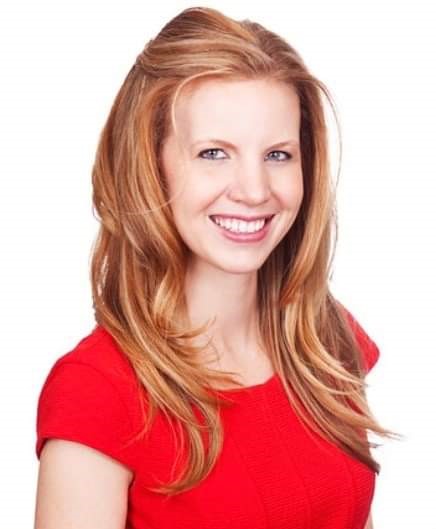
“[RMMFI’s mission] is resonating with a lot of our banking staff.”
–Amanda Peters
In September 2021, Meow Wolf announced that Miss Peabody’s Tea Cakes would be included among a baker’s dozen of local food vendors when its Convergence Station opened in Denver. Miss Peabody’s tea cakes are currently available at Convergence Station, and according to her website, Richard has paused fulfilling online orders at the moment due to staffing shortages.
Smith relishes watching the success of start-ups like Miss Peabody’s. “We are walking side by side with entrepreneurs,” he said. “It’s incredible to watch people navigate the journey, supporting them and learning from them to make our program more relevant. I’m constantly learning from our entrepreneurs and their experiences.”
Union Station, Denver, Colorado.
Denver Foundation calls RMMFI “a bullseye fit”
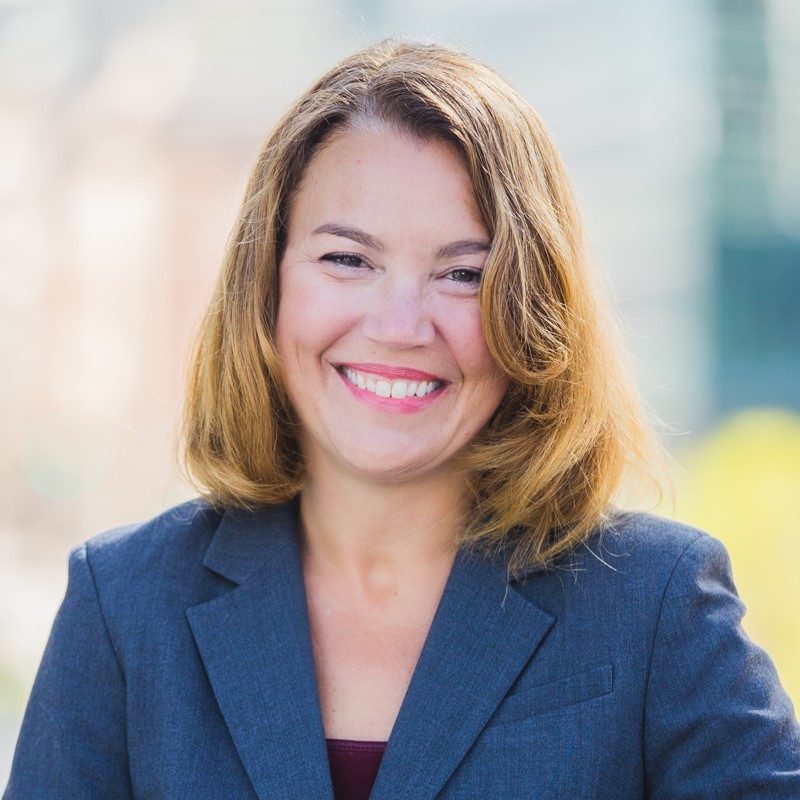
“RMMFI was a bullseye fit.”
–Dace West
Dace West is chief impact officer for the Denver Foundation. As a result of Smith’s Investment Connection pitch, her foundation invested $73,500 in RMMFI. She calls RMMFI “a shining star in the Denver community.” Ten years ago, though, it was just emerging onto the scene.
In 2011, the Denver Foundation’s funding priorities included economic opportunity, such as support for entrepreneurs. “The $73,500 grant was not typical,” West said. “Our average grant size was $18,000. It was a testament to the fact that RMMFI was a bullseye fit for the Denver Foundation.”
For West, the value of Investment Connection is how it highlights investment-worthy organizations. “Investment Connection does a great job of pulling up the groups that are doing really important work and making a difference,” she said. Where groups vary in their sophistication and ability to make a compelling pitch, she said, Investment Connection provides coaching. “Continuing to do that is important. That allows groups to be successful.”
Vectra Bank was another of the initial RMMFI funders in 2011, and it has continued to fund RMMFI most years since then. “We have more involvement with them right now than we’ve ever had,” noted Amanda Peters, senior vice president at Vectra. “The mission of RMMFI is resonating with a lot of our banking staff, and several have signed up to volunteer in the community.”
Peters attends as many Investment Connection events as she can. “Every time I attend one, I learn about projects I wasn’t aware of. Oftentimes, they’re in some of the smaller communities of Colorado that have a great need for assistance. I wouldn’t have known about those investment opportunities if it wasn’t for Investment Connection.”
Honoring roots gives Investment Connection program wings
Before Janet Yellen became US Treasury secretary, she was chair of the Federal Reserve, where she was known for her commitment to community development. To honor that commitment, the Federal Reserve Board of Governors created the Janet L. Yellen Award for Excellence in Community Development. The first award was given November 2018, to Ariel Cisneros, founder of Investment Connection.
The award recognized Cisneros’s body of work in the Federal Reserve System, including at the Dallas Fed and the Kansas City Fed. “I’ve been in community development at the Fed for 20+ years,” Cisneros said. “I’ve worked with many outstanding folks in the community development space who have a commitment and passion for the work. There are so many worthy individuals out there, people who came before me and who will continue after me. It’s humbling.”
The Yellen Award highlighted Investment Connection and encouraged other banks to adopt the model. Before the Yellen Award, just two other Reserve Banks—St. Louis and Minneapolis—had added Investment Connection programs. Since then, the Cleveland, Dallas, New York, and Richmond Federal Reserve Banks have launched their own versions of the program.
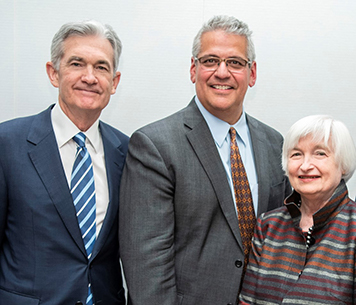
The Federal Reserve Bank of Atlanta building © Federal Reserve Bank of Atlanta
Helping to get new places on banks’ radar
At the Atlanta Fed, David Jackson is eager to get an Investment Connection program started when in-person events resume. Jackson, an assistant vice president on the community and economic development team, says it’s important to be deliberate about building an Investment Connection program. “It takes time,” he said. “For banks that haven’t done it, it’s not like flipping a switch. You have to build it.”
Investment Connection is one more step in solving a puzzle at the center of Jackson’s life. Jackson grew up in New York City in the South Bronx and Harlem neighborhoods. “These places couldn’t get investment [dollars],” Jackson said. “I have been driven by this question of why do some places get much better investment than others? I got an MBA to figure out what drives how capital flows.”
Jackson sees Investment Connection as a platform that cities within the Atlanta Fed’s district, such as Lake Charles, Louisiana, and Birmingham, Alabama, can use to help people looking for funding find banks and other investors that are willing to lend.
Sometimes investors have a rearview mirror perspective of a place, he said. “It’s like an appraisal look, but it doesn’t tell you where the next deal might be. Using the convening power of the Fed, we can get people to look at a place that might not have hit their radar without a formal opportunity like this. Investment Connection is an opportunity to help new places be seen.”
When Cisneros reflects on the program he created to bridge a gap between nonprofits and funders, he sees the impact of funders’ lending and investing dollars in communities across the nation. He also sees the impact of convening people and building lasting relationships. “Within the past 10 years,” Cisneros said, “we’ve seen many connections that have turned out to be long-term funding relationships, volunteer relationships, or both.”
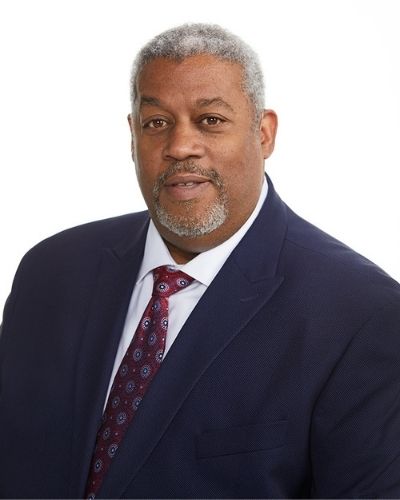
“Investment Connection is an opportunity to help new places be seen.” –David Jackson
Cisneros emphasizes that while the dollars are needed and very important, “the program’s value goes well beyond the dollars invested to building those productive, long-term relationships. And that’s exciting.”







